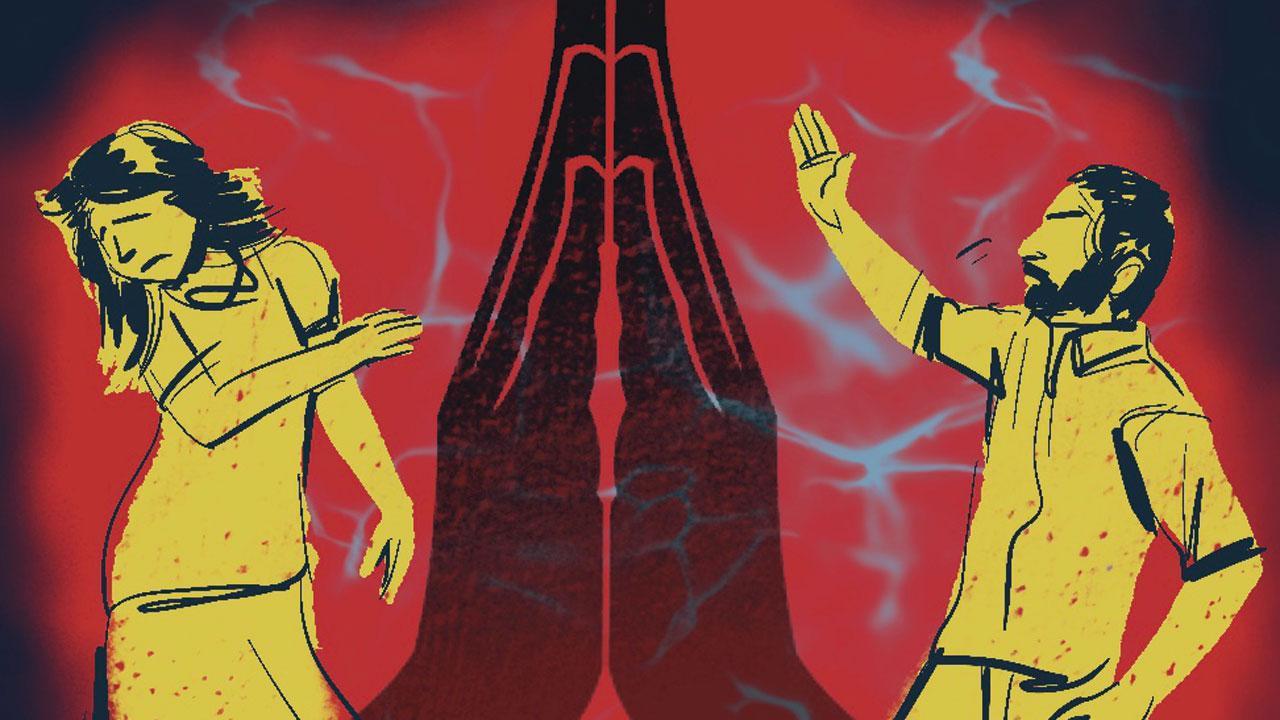When caste is used to assert inherent goodness, those who are denounce critiques of casteism as being casteist, seem to melt away. Perhaps, in confusion

Illustration/Uday Mohite
![]() Some years ago, I interviewed a woman who was right-leaning, articulate, impassioned about women’s issues and concerned about children. While discussing caste-based sexual violence, she bristled, “Why do you want to bring caste into it? Sexual violence against any woman is bad, period.” Generalisations, especially about good and bad, often help create a pretend reality, featuring a pretend equality.
Some years ago, I interviewed a woman who was right-leaning, articulate, impassioned about women’s issues and concerned about children. While discussing caste-based sexual violence, she bristled, “Why do you want to bring caste into it? Sexual violence against any woman is bad, period.” Generalisations, especially about good and bad, often help create a pretend reality, featuring a pretend equality.
Most people who assume this position are intriguingly silent when someone makes an argument about innocence based on caste. Eleven men convicted of raping Bilkis Bano in the 2002 communal riots in Ahmedabad, and murdering her family, were freed on Independence Day, no less. MP, CP Raulji, on the panel that recommended their release defended them, saying, “I don’t know whether they committed the crime or not… Their conduct in jail was good, they were Brahmins... men with good sanskaar [values].” The claim of inherent virtue via identity overshadows the crime. When Bhanwari Devi, a grassroots worker in Rajasthan was gang-raped by upper caste men in 1992, a judge declared that a Brahmin man would obviously not touch a Bahujan woman. When caste is used to assert inherent goodness, those who are denounce critiques of casteism as being casteist, seem to melt away. Perhaps, in confusion.
Once I was asked to do a workshop in an elite school without a fee because, “It’s doing something for children.” “For rich children,” I said. “Children are children,” I was told, though I am sure that did not prevent the school from charging hefty tuition fees. And yet, theirs are not the voices we hear when a nine-year-old child dies after being hit by a teacher, for drinking water from a pot meant for upper castes. The gathering of upper caste groups to demand justice from justice too does not seem to present proof of caste to most people.
In many deaths from caste based violence, as that of the student, Indra Meghwal occur, or in sexual crimes, we see an unseemly pressure on the family by the system to cremate the body, erasing the symbol of the crime, which is often the first step to erasing the crime itself. The crime is half-acknowledged. Aspects of caste are eclipsed, and eventually, the crime too might be made to vanish in the dark to reflect that ‘caste does not exist.’
People like to believe they and ‘their people’ are good. People are affronted if you mention, even in theoretical discussions, that they (we) are elites as if it equates them with badness. Inequality is far from invisible, but it is constantly rendered invisible by the refusal to see it and by a constant process that erases it from view. After this subjective reality is constructed, it is often defended by offering proof of one’s own goodness in caring for women and children, “generally”. That generality is less good-ness and more, a kind of willful innocence.
The idea of goodness makes it sound beatific—and when linked to identity, makes it sound automatic. In fact being a good person is quite difficult, requiring painful self-awareness, acceptance of one’s limitations and good fortune by birth, commitment to changing oneself and the willingness to give up power and control. As each passing week shows us, a reckoning with that kind goodness, though, is long overdue.
Paromita Vohra is an award-winning Mumbai-based filmmaker, writer and curator working with fiction and non-fiction. Reach her at paromita.vohra@mid-day.com
 Subscribe today by clicking the link and stay updated with the latest news!" Click here!
Subscribe today by clicking the link and stay updated with the latest news!" Click here!










